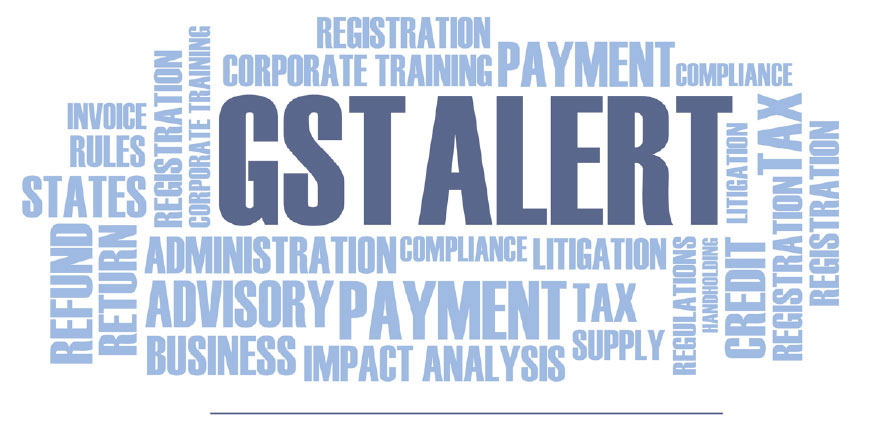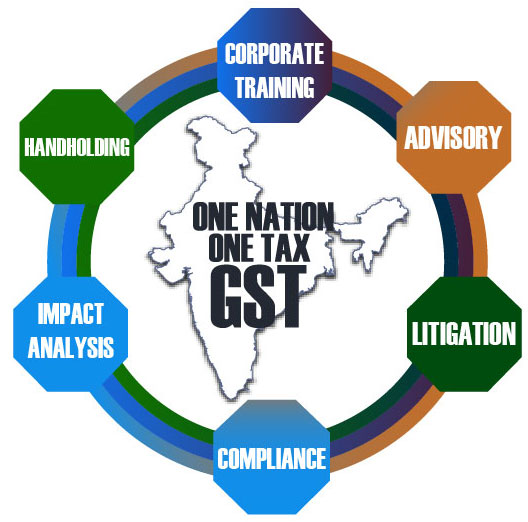Dated 2nd November, 2020

Availment & utilization of EC, SHEC & KKC under GST through transition of un-utilized Input Tax Credit shall not be allowed – Divisional Bench of Madras High Court setting aside single judge bench decision1
Facts of the case
The respondent company is providing Information Technology enabled services to customers worldwide. It has eight units registered under the Act, five units registered in Special Economic Zones (SEZ),two units in Software Technology Parks of India and one unit in a Domestic Tariff Area (DTA).
The respondent wanted to utilize and set off the accumulated un-utilized amount of Education Cess (EC), Secondary and Higher Education Cess (SHEC) and Krishi Kalyan Cess (KKC), jointly referred to as the "Cess" against the Output GST Tax Liability after the switch over of Indirect Taxation System to GST Regime with effect from 01.07.2017.
The respondent provides Technical and Call Centre Services all over the country and believed that Cess in the form of Education Cess, etc. can be adjusted against the Output GST liability under the provisions of CGST Act, 2017 (Central Goods and Service Tax Act, 2017). Therefore wanted to set off, adjust or utilize the Input Tax Credit of Cess paid at the time of manufacture or import.
However the petitioner contented that credit could be set-off only against specific duties and taxes enumerated in the Explanation to Section 140(1) of the CGST Act read with rule 117 of the CGST Rules.
Section 140(1) mentions that a registered person, other than a person opting to pay tax under section 10, shall be entitled to take, in his electronic credit ledger, the amount of CENVAT credit of eligible duties carried forward in the return relating to the period ending with the day immediately preceding the appointed day, furnished by him under the existing law in such manner as may be prescribed:
Provided that the registered person shall not be allowed to take credit in the following circumstances, namely:
- where the said amount of credit is not admissible as input tax credit under this Act; or
- where he has not furnished all the returns required under the existing law for the period of six months immediately preceding the appointed date; or
- where the said amount of credit relates to goods manufactured and cleared under such exemption notifications as are notified by the Government.
Further against the order of the single Judge which passed in favour of the respondent, the petitioner filed a writ requesting that the order should be quashed and the credit should be disallowed under GST.
Since the explanation does not cover Cess such as EC, SHE and KKC, the same could not be carried forward.Therefore request to carry forward and utilize the credit should be rejected.
Submission on behalf of the Petitioner
The Petitioner argued that with the levy of Cess having been dropped in the year 2015 by the Finance Act, 2015, the un-utilized amount of Education Cess and Secondary and Higher Education Cess which could not be set off by the respondent during the contemporary period prior to 30th June 2017, cannot be allowed to be carried forward under the transitory provisions of Section 140 of the CGST Act, because it became a dead claim of the respondent and since the levy of Cess was not continued after 2015 nor such levy was subsumed in the listed 16 taxes which were subsumed under the GST law, the credit in respect of such Cess could not be claimed against the Output GST liability.
The Petitioner emphasized that since Cess was collected for a specific purpose by the Central Government and such levies imposed by the Finance Act and the purpose of giving the input credit in respect of the same against the output Cess liability was only to remove the cascading effect and which is the bedrock of such Input Tax Credits in the indirect taxation system.
Therefore, the utilized portion of such CENVAT credit in the form of Education Cess and Secondary and Higher Education Cess became a dead claim after such levies were dropped in the year 2015 and unlike unutilized portion of CENVAT credit in the form of specified additional excise duty, customs duty, National Calamity Contingent Duty on inputs which were transitioned as per Section 140 of the CGST Act for the period from 01.07.2017 also, such unutilized Cess could not stand at parity with unutilized Input credit of specified excise duty.
Therefore, the claim of the petitioner in this regard was misconceived and learned Single Judge has erred in allowing the same
Submission on behalf of the Respondent
It was submitted by the respondent that they supported the order of the learned Single Judge and urged that as per CENVAT Rules, 2004, they had already taken or availed credit of the Education Cess and Secondary and Higher Education Cess paid by him on the inputs and therefore, it was there indefeasible right to utilize the same against the Output Tax Liability and could not be taken away by the Legislature when a switch over was made to GST Regime with effect from 01.07.2017.
It was submitted that the respondent provided Countrywide Technical Services and Call Centre facilities to its customers, on a centralized registration under the provisions of CGST Act and therefore, in terms of Section 140(8) of the CGST Act, it was entitled to avail credit of the amount of CENVAT credit as defined in CENVAT Rules, 2004 against its Output Tax Liability even under the GST Regime.
Section 140(8) mentions that where a registered person having centralised registration under the existing law has obtained a registration under this Act, such person shall be allowed to take, in his electronic credit ledger, credit of the amount of CENVAT credit carried forward in a return, furnished under the existing law by him, in respect of the period ending with the day immediately preceding the appointed day in such manner as may be prescribed:
Provided that if the registered person furnishes his return for the period ending with the day immediately preceding the appointed day within three months of the appointed day, such credit shall be allowed subject to the condition that the said return is either an original return or a revised return where the credit has been reduced from that claimed earlier:
Provided further that the registered person shall not be allowed to take credit unless the said amount is admissible as input tax credit under this Act:
Provided also that such credit may be transferred to any of the registered persons having the same Permanent Account Number for which the centralized registration was obtained under the existing law.
It was submitted by the respondent that the amendment to Section 140(1) by CGST (Amendment) Act, 2018 with retrospective effect from 01.07.2017 by insertion of words "of eligible duties" in Section 140(1) of the Act and the words "eligible duties and tax" did not affect Section 140(8) of the Act, as no such similar insertions were made in Section 140(8) of the Act and the Section 140(8) independently covers the case of the present respondent which entitled him to take such credit of the Education Cess and Secondary and Higher Education Cess, even after the introduction of GST Regime with effect from 01.07.2017.
The respondent further submitted that such Cess was collected in the form of duty and taxes only and therefore, even though they were imposed by the Finance Act, the collection of levy was in the nature of duty or tax and the same was liable to be set off and utilized against the Output Tax Liability.
They admitted that cross utilization of Cess against the Output Tax Liability of Excise Duty and Service Tax prior to introduction of GST Regime on 01.07.2017 was not permitted as per Rule 7 of the CENVAT Rules, 2004 and Cess could be set off only against the Output Levy of Cess while the said imposition was operating, but, nonetheless, the CENVAT Credit in respect of such Cess, which was not so far utilized and such credit was carried forward in its Electronic Ledger which was submitted in the form of TRAN-1 Form as required in the new GST provisions was never objected to by the Revenue authorities until the impugned communication was issued to the respondent which led to the filing of the writ petition. Therefore, the learned Single Judge was justified in allowing the same to the respondent.
Decision of Honorable Madras High Court
It was held that GST Law spared and did not include within its ambit and scope only six commodities which were left out and continued to be covered by the earlier existing laws of Excise Duty and VAT Law and for that purpose, Entry 54 of the State List and Entry 84 of the Union List were also suitably amended by 101st Constitutional Amendment Act.
Six items which are not covered by GST are (a) Petroleum Crude, (b) High Speed Diesel, (c) Motor Spirit (commonly known as Petrol), (d) Natural Gas, (e) Aviation Turbine Fuel and (f) Tobacco and Tobacco products. Except the aforesaid 16 taxes and duties specified in different enactments, no other tax or duty were subsumed under the new GST Regime with effect from 01.07.2017.
The transition of unutilized Input Tax Credit could be allowed only in respect of taxes and duties which were subsumed in the new GST Law. Admittedly, the three types of Cess involved before us, namely Education Cess, Secondary and Higher Education Cess and Krishi Kalyan Cess were not subsumed in the new GST Laws, either by the Parliament or by the States. Therefore, the question of transitioning them into the GST Regime and giving them credit under against Output GST Liability cannot arise. The plain scheme and object of GST Law cannot be defeated or interjected by allowing such Input Credits in respect of Cess, whether collected as Tax or Duty under the then existing laws and therefore, such set off cannot be allowed.
It was held that the learned Single Judge was erred in allowing the claim of the respondent under Section 140 of the CGST Act. The main pitfalls in the reasoning given by the learned Single Judge are
(a) the character of levy in the form of Cess like Education Cess, Secondary and Higher Education Cess and Krishi Kalyan Cess was distinct and stand alone levies and their input credit even under the Cenvat Rules which were applicable mutatis mutandis did not permit any such cross Input Tax Credit, much less conferred a vested right, especially after the levy of these Cess itself was dropped;
(b) Explanation 3 to Section 140 could not be applied in a restricted manner only to the specified Sub-sections of Section 140 of the Act mentioned in the Explanations 1 and 2 and as a tool of interpretation, Explanation 3 would apply to the entire Section 140 of the Act and since it excluded the Cess of any kind for the purpose of Section 140 of the Act, which is not specified therein, the transition, carry forward or adjustment of unutilized Cess of any kind other than specified Cess, viz. National Calamity Contingent Duty (NCCD), against Output GST liability could not arise.
The appeal of the Revenue was allowed and the judgment of the learned Single Judge was set aside and it was held that the respondent was not entitled to carry forward and set off of unutilized Education Cess, Secondary and Higher Education Cess and Krishi Kalyan Cess against the GST Output Liability with reference to Section 140 of the CGST Act, 2017.
1 ASST CGST & CE VsSutherland Global Services PVT LTD [2020-TIOL-1739-HC-MAD-GST]

BT Associates is a premier indirect tax consultant in kolkata, delivering high quality services to client in the area of indirect taxation.GST idea is a unit of BT Associates formed to share knowledge on stakeholders. We cover entire gamut from technical papers to recent development including IT under GST


-
Founder Member
- Bhaskar Thakkar
- Chief Executive officer
- BT Associates, India
- thakkar@btassociate.com
BT Associates is a premier indirect tax consultant in kolkata, delivering high quality services to client in the area of indirect taxation.GST idea is a unit of BT Associates formed to share knowledge on stakeholders. We cover entire gamut from technical papers to recent development including IT under GST






